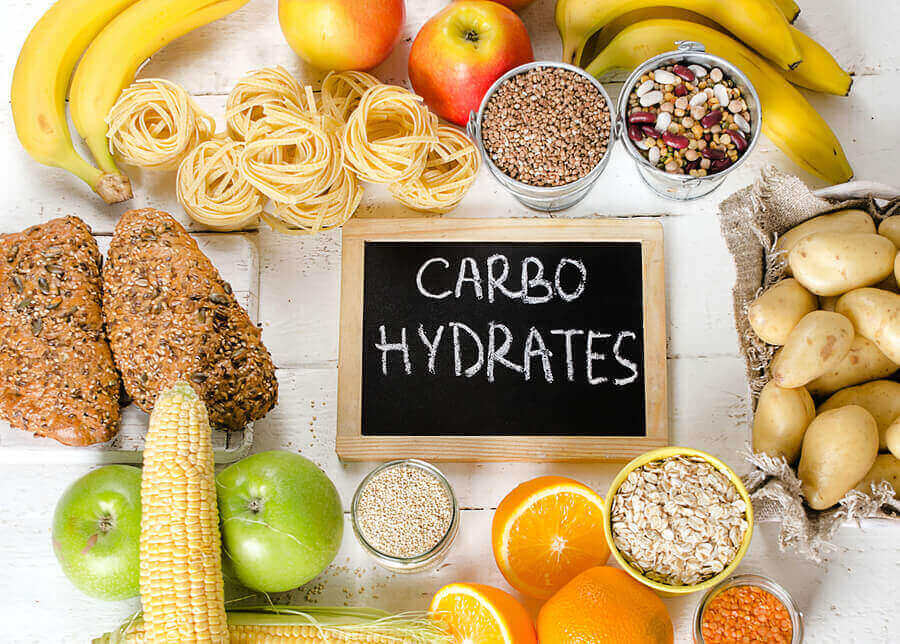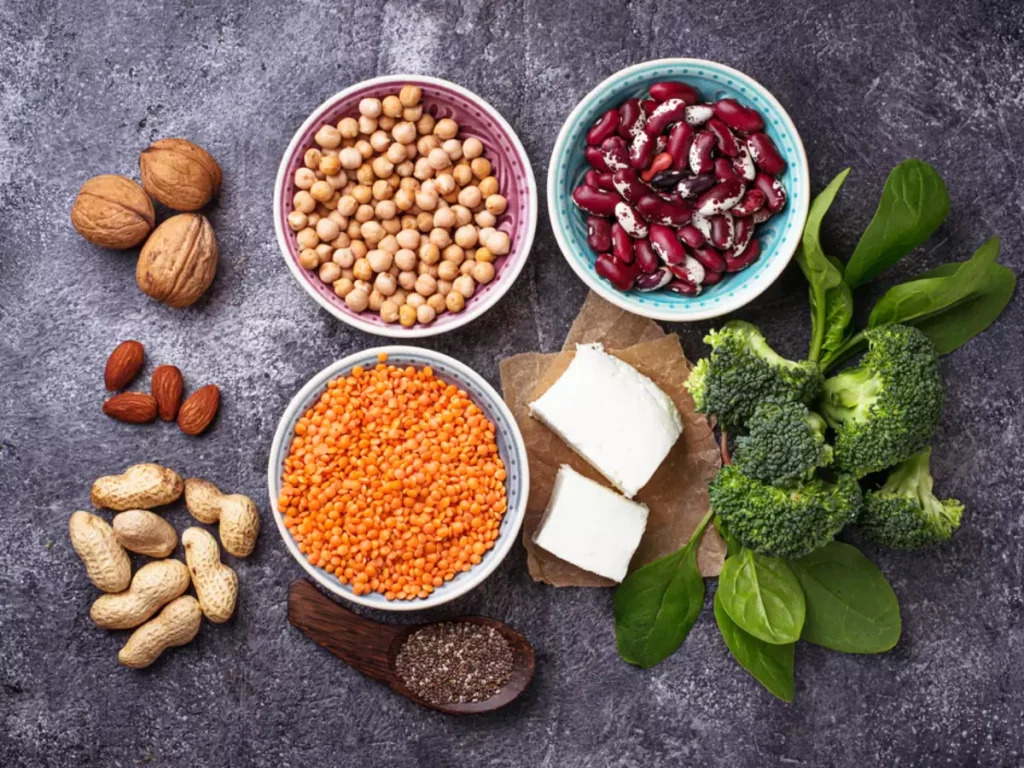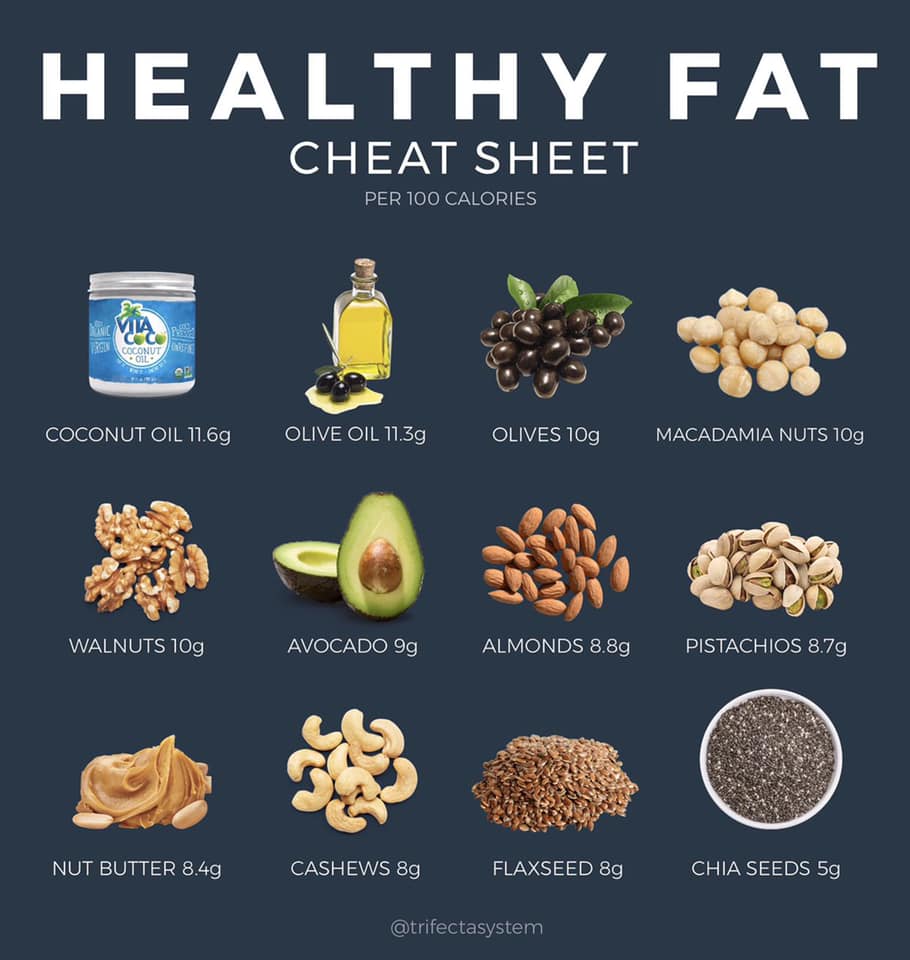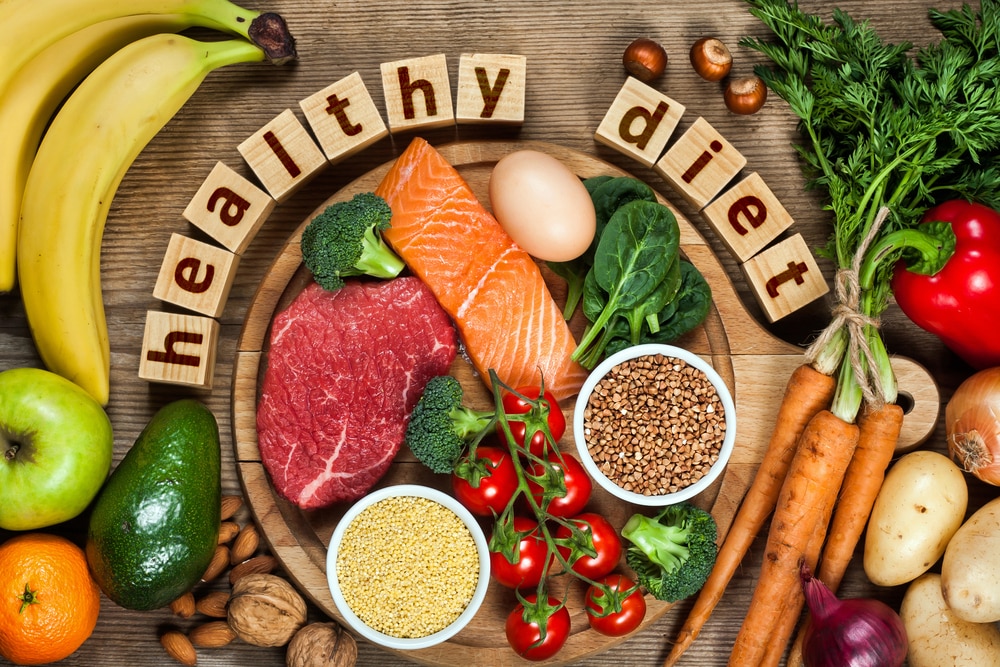Concept of a Balanced Diet A sufficient amount of all the nutrients needed by the body to develop, stay healthy, and be disease-free is found in a balanced diet. Furthermore, a balanced, nourishing diet boosts immunity, protects against vitamin, mineral, and other deficiencies, and gives the energy necessary. A person’s diet mostly consists of how much wholesome food they eat; additionally, nutrition is the process through which the body grows, breaks down, and repairs its cells.
There’s a positive correlation between food and health. The process of nutrition aids in the body’s improvement, energy use, and tissue and cell repair. The main focus of diet is how much nutrient-dense food each individual eats. Health and food are well matched. Not only does everyone require food, but they also need a healthy diet.

balanced diet
Understanding a Balanced Diet: Key to Optimal Health

The body needs glucose as its main energy source. They transform into glucose, that powers both physical activity and internal functions. But every single carbohydrate is produced equal. Whole grains like brown rice, oats, and whole wheat bread include complex carbs, which are healthy since they release energy slowly and have a high amount of fiber. Fruits, vegetables, and legumes are good sources of fiber, which supports heart health, improves digestion, and helps adults maintain a healthy weight. Make an effort to consume most of your carbohydrates in these complex meals
- Proteins

Protein is an important role the human body needs; they give us strong bones and a healthy body. Muscles and organs depend on proteins. They consist of amino acids, some of which must be received through diet as they are important. Protein is good for hair, nails, and skin. Plant-based proteins like tofu, tempeh, and beans are good alternatives for vegetarians. Plant-based proteins are none other than the proteins that are derived from plants.
They have vegetarian food for protein, food sources, and plant-based protein like pulses, soya, paneer, tofu, seeds, nuts, several grains, and peas. Pulses here can be anything from a large group of plants, including chickpeas, beans, lentils, and split peas. Proteins are very high in nutrients, fiber, vitamins, and minerals.
- Fats

A balanced diet needs to have fats to promote cell development, give energy, and help with the absorption of fat vitamins (A, D, E, and K). However, the type of fat we consume matters. Select healthy fats instead, such as those in nuts, seeds, avocados, and olive oil. The omega-3 fatty acids are also high in fatty fish, which includes salmon, and are beneficial for heart health. Reduce your daily intake of trans fats, which are frequently found in fried and artificially baked meals, as well as saturated fats, which are found mainly in processed foods and fatty meat cuts.
- Vitamins and Minerals

Minerals and vitamins play the most important role in the variety of biochemical functions in the human body, especially the immune system and bone health, because of this is the human body structure. A balanced diet includes all necessary grains, milk and dairy products, fruits, and vegetables to make sure the body gets sufficient of the important vitamins and minerals. For example, dairy items include calcium that develops bones, and citrus fruits give vitamin C, which boosts the immune system. Meats and soybeans provide minerals like iron, which are necessary for the transport of oxygen machinery. Having a wide range of colorful fruits and vegetables helps in supplying an accurate intake of important nutrients.

Water plays an important part in the world; without it, life cannot exist. In this universe, no living thing exists without water. Although sometimes disregarded, water is essential for good health. It increases multiple physiological processes, makes the human body well-hydrated, and maintains body temperature. It is very necessary to stay hydrated during the whole day and depends on the temperature and amount of physical activity. Everybody who eats high-water fruits and vegetables, such as oranges and cucumbers, may help you fulfill your daily water needs in addition to consuming water to drink.
Benefits of a Balanced Diet
A balanced diet supports all over health in various way:
- Increase Energy Levels: A proper balanced diet gives nutrition to our body, and strong from inside makes the body, which makes us feel energetic throughout the day.
- Improved Digestion: A high-fiber-rich diet is clean work for the body and does not allow constipation, which keeps the disease away from the body.
- Weight Control: A light and proper diet controls hunger, manages weight, and helps to keep the body active.
- Less Risk of Diseases: If we follow a complete nutritional diet, then we can avoid the risk of chronic diseases like heart disease, BP, diabetes, and cancer.
- Good Mental Health: Nutrition: Omega 3 fatty acids, vitamins, and minerals are a good source for mental health, all of which strengthen the health and functions of the brain.
There are some practical tips to achieve a balanced diet
- Meals Plains: A variety of food items from all food groups into your week-wise plain.
- Manage Portions: Give more attention to portion intake to ignore more eating habits and make sure balanced nutritional supply.
- Choose Snack Wisely: Choose a healthy snack like mixed fruits, soaked nuts, or fresh yogurt, poha, shakes.
- Stay Allways Hydrated: Drink a lot of water throughout the day and consume water-rich fruits and salad to help take your proper hydration.
Good Health Starts with Good Food
Overall health and well-being, a balanced diet rich in nutrients is key. Here are many universally beneficial food items that can manage to a healthy diet. Food is key of healthy lifestyle, but new generation is not aware about healthy food they eat more junk food and processed food. this type of food creates much health problems in future like high BP, cancer, sugar, heart problems and more. If we take care of the diet from now on, then we can save our body, for that we should exercise along with the human diet, nothing will happen with just diet, we should do gym and yoga, the gym will cure the physical body, and yoga will cure mental health.
- Green Leafy: Spinach, kale, and Swiss chard are packed with vitamins, minerals, and antioxidants.
- Berries: Blueberries, strawberries, and raspberries are high in antioxidants, vitamins, and fiber.
- Nuts and Seeds: Almonds, walnuts, flaxseeds, and chia seeds provide healthy fats, protein, and fiber.
- Whole Grains: Brown rice, quinoa, oats, and whole wheat products offer fiber, vitamins, and sustained energy.
- Fatty Fish: Salmon, mackerel, and sardines are rich in omega-3 fatty acids, which support heart and brain health.
- Legumes: Beans, lentils, and chickpeas are excellent sources of protein, fiber, and essential nutrients.
- Cruciferous Vegetables: Broccoli, cauliflower, and Brussels sprouts are high in vitamins, minerals, and fiber.
- Citrus Fruits: Oranges, grapefruits, and lemons are rich in vitamin C, which supports the immune system.
- Sweet Potatoes: High in beta-carotene, fiber, and vitamins, they offer a nutritious alternative to regular potatoes.
- Avocados: Packed with healthy fats, fiber, and various vitamins and minerals.
- Yogurt: Provides probiotics, protein, and calcium, supporting gut health and bone strength.
- Lean Proteins: Chicken, turkey, and tofu are good sources of protein without excessive fat.
- Garlic and Onions: These add flavor and provide antioxidants and other compounds that support health.
- Herbs and Spices: Turmeric, ginger, and cinnamon have anti-inflammatory properties and various health benefits.
Incorporating these foods into your diet can help ensure you get a wide range of nutrients that support overall health. A balanced diet, along with staying hydrated and getting regular exercise, contributes to long-term well-being.
A Balanced Diet for Kids Underage of 5 Year
Balanced diet for children creates a strong foundation for growth
A balanced diet is especially important for children under five, as it provides the basis for their physical, mental and emotional development during this developmental stage. Children need balanced nutrition to support their rapid growth and energy needs. Here is a comprehensive guide to creating a balanced diet for young children.
1. Important components of a balanced diet
Carbohydrates (energy)
Carbohydrates are the main source of energy for active children.
Examples include whole grain bread, rice, pasta, oatmeal, potatoes, and sweet potatoes.
Tip: opt for whole grains or Poly grains for a sustainable energy release. If your child likes refined grains Keep mixing to adjust to the grain over time.
Proteins (growth and repair)
Protein is essential for supporting muscles, tissues and the immune system.
Examples: Lean meat, poultry, fish, eggs, beans, lentils, tofu, and nuts. (either ground for safety or in the form of peanut butter)
Tip: Include fish (such as salmon or mackerel) twice a week for brain-boosting omega-3 fatty acids.
Fruits and vegetables (vitamins and minerals)
Fruits and vegetables are rich in essential vitamins, minerals, and fiber. Boosts immunity and digestion
Examples include apples, bananas, berries, carrots, spinach, peas, and bell peppers.
Tip: Serve a variety of colorful foods and aim for at least five per day. Make it fun by presenting vegetables in a fun way or adding them to a sauce.
Dairy products (calcium and vitamin D)
Dairy products are important for strong bones and teeth.
Examples: Milk, cheese, yogurt, and plant-based dietary supplements such as almond or soy milk.
Tip: Use whole milk for children underage. and switch to eating a low-fat diet…
A Proper Balanced Diet of Elders Under the Age of 40 Years.
Maintaining a healthy, balanced diet is important for people under 40, as these years often lay the foundation for long-term health and vitality. Eating the right foods not only gives you energy to work. exercise and activities each day, but it also promotes mental health and reduces the risk of chronic disease later in life. Here is a comprehensive guide to creating a balanced diet for people under 40.
Important components of a balanced diet
- Carbohydrates: the body’s main source of energy.
Why is that? Carbohydrates provide the energy needed for daily activities. exercise and mental concentration
Things to include: whole grains like brown rice, oats, quinoa, whole-grain bread, and pasta.
Tip: Opt for complex carbohydrates over refined carbs to maintain stable energy levels and avoid blood sugar spikes.
- Protein: an important component of muscles and tissues.
Why is that? Necessary for muscle repair, immune system function and hormone production
What to include: lean meats (chicken, turkey), fish, eggs, beans, lentils, tofu, nuts, and seeds.
Tip: Include protein with every meal to promote muscle health and feel fuller longer.
- Healthy Fats: Essential for brain and heart health.
Why is that? Fat supports brain function. Hormone control and absorption of nutrients
Things to include: avocados, olive oil, nuts, seeds, and fatty fish (such as salmon and mackerel).
Tip: Avoid trans fats and limit saturated fats. Focus on unsaturated fats instead.
- Fruits and vegetables: source of nutrients
Why is that? Rich in vitamins, minerals, antioxidants, and fiber.
What to include: colorful fruits and vegetables. Includes green leafy vegetables, berries, carrots, bell peppers, and citrus fruits.
Tip: Aim for at least 5 servings per day, raw included.

